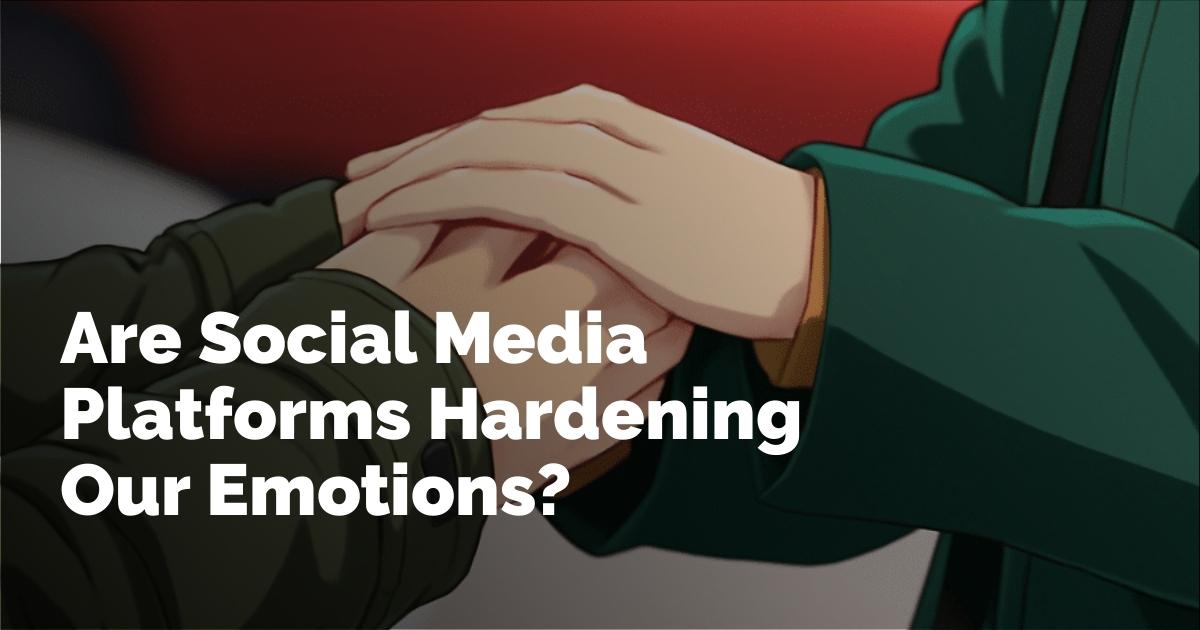Exploring the Emotional Disconnect in the Digital Age
In an interconnected world where digital screens dominate interactions, the emotional landscape is transforming. While social media promises connection, the reality for many is a sense of disconnection. The very platforms we rely on to engage with others may inadvertently reshape our emotional understanding. This complex interaction between technology and empathy is particularly influential among today's youth, prompting a need to reflect on how we navigate these digital spaces.
The Evolving Nature of Empathy
Empathy, the cornerstone of human connection, is the ability to understand and share the feelings of others. It involves actively stepping into another's emotional experience, providing a foundation for support and solidarity. As our digital participation grows, especially through platforms like Instagram, TikTok, and X, the traditional pathways for experiencing empathy are being redefined.
These platforms excel at providing immediate connection with others across the globe, enabling participation in diverse dialogues and supporting awareness of various social causes. However, this unprecedented access comes with its challenges. According to Marc Scott, a diversity, equity, and community coordinator, the concern arises when people accept information at face value without further investigation. The sheer volume of content can saturate users' emotional senses, leaving little room for deep, meaningful interactions.
Understanding Communication in a Digital Dimension
A fundamental shift occurs when our primary interactions move from face-to-face to screen-based. The digital realm lacks the non-verbal cues critical to emotional communication—facial expressions, tone, and body language. Without these, misunderstandings can flourish, causing either confusion or an emotional numbness.
Moreover, online personas often showcase curated versions of reality, polished and perfect, which can skew perception. As Scott highlights, a person with a large following may not reflect the diversity of a group, yet they can unduly influence perceptions. This superficial engagement can stifle genuine understanding and empathy, potentially leading to the reinforcement of stereotypes and limited emotional connection.
The Challenge of Constant Media Exposure
The intense exposure to digital media presents another layer of complexity: compassion fatigue. Constant scrolling through posts, particularly those displaying crises or tragic events, can desensitize users, reducing the impact these narratives might typically have. A study led by Roxanne Cohen Silver discovered that exposure to media covering events like the 9/11 attacks and the Iraq War could incite collective trauma, illustrating the significant psychological effects of vicarious media consumption.
However, bright spots do exist within these digital interactions. Online spaces can serve as powerful support systems, facilitating communities that address mental health and social justice. These communities provide a platform for personal storytelling and solidarity, transcending geographical boundaries. As Scott notes, the benefits depend largely on how these digital tools are utilized.
Cultivating Digital Empathy
The cultivation of empathy in our digital lives necessitates intentional effort. With a growing number of teenagers perceiving social media's impact as negative, awareness and critical engagement become vital. The Pew Research Center found that the negative perception of social media among U.S. teens rose to nearly half by 2025, up from 32% in 2022. This clearly indicates a need for a more discerning approach to digital engagement.
To preserve empathy, it becomes essential to critically evaluate content, actively seek diverse perspectives, and periodically detach from the constant stream of content dictated by algorithms. By doing so, users can expand their worldview rather than becoming confined to echo chambers. Marc Scott emphasizes the importance of using social media as a tool that, if wielded thoughtfully, can foster personal growth and empathy.
Reflecting on Personal Experiences with Social Media
This topic has been on my mind due to recurring conversations where I sensed a lack of genuine emotional engagement. People seemed detached, as if viewing serious issues through a screen rather than engaging with a real person. This experience raised an important question: Has social media altered our capacity to empathize and respond emotionally?
Ultimately, social media is not inherently detrimental or beneficial to empathy; rather, it remains a tool that requires mindful usage. By fostering a deliberate approach to digital interactions, empathy can continue to flourish even in an era dominated by screens.
Key Questions for Reflection
- What role does empathy play in our digital interactions, and why does it remain crucial?
- How does excessive time on social media impact our emotional responses?
- How can users recognize when their engagement with social media has become excessive?
The quest to maintain human connection in a rapidly digitizing world rests upon our ability to navigate these platforms with empathy and critical insight. Understanding their influence on our emotional lives is the first step in ensuring that empathy remains a vital part of our shared digital experience.
출처 : Original Source

